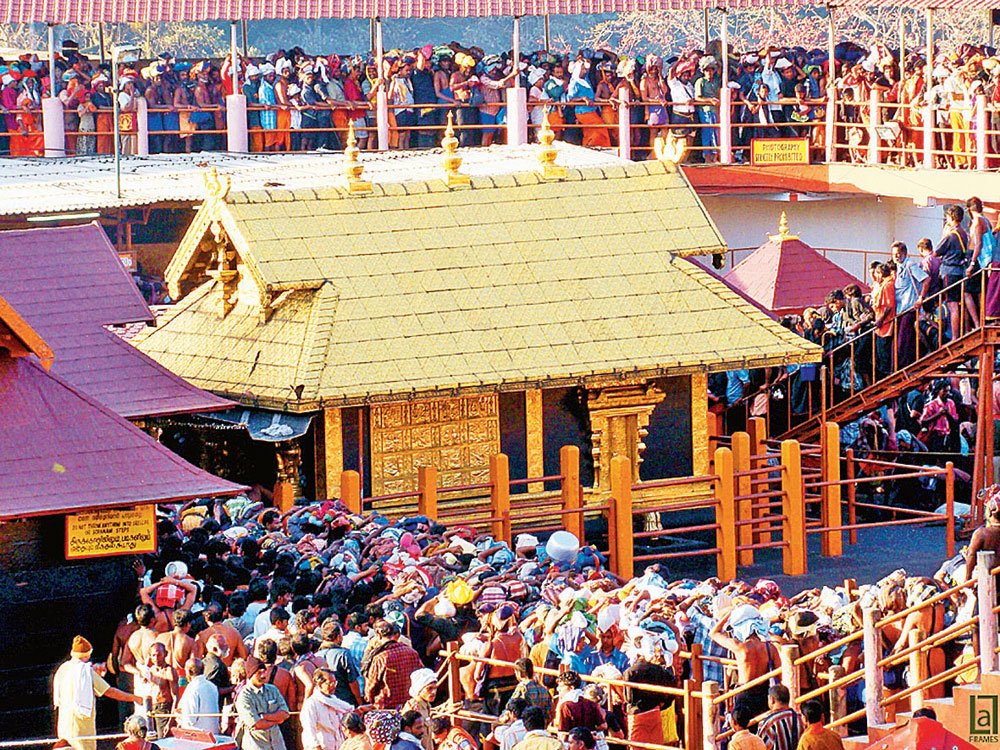Over two decades before the Supreme Court allowed the entry of women of all ages into the Lord Ayyappa temple at Sabarimala, a woman IAS officer had visited the hill shrine as part of her official duty, armed with a special order from Kerala High Court.
Braving threats from conservatives and the tough terrains of the hillock, K.B. Valsala Kumari, aged 41 and then collector of Pathanamthitta district, visited the temple complex at least four times in 1994-95.
Although women in the menstrual age group of 10 to 50 years were then barred from entering the Sabarimala temple, Kerala High Court allowed Kumari to visit the shrine to coordinate the activities of various agencies as part of the preparations for the annual pilgrimage season.
The court, however, had observed that her visit would not be connected with the pilgrimage and it would be strictly part of her official duties as the district collector.
Kumari was also asked not to climb the “Pathinettam Padi”, the 18 sacred gold-plated steps leading to the sanctum sanctorum.
“I could visit Sabarimala at that age, thanks to the high court order. Now, the apex court has thrown open the doors to women of all age groups. The verdict is really good,” Kumari said.
An ardent devotee of Lord Ayyappa, Kumari was the first woman to visit the Sabarimala shrine with legal backing. The officer had ignored threat letters.
Kumari, who has retired since, said she climbed the sacred steps and offered worship to Lord Ayyappa only after she turned 50.
“I had no permission to go and see the Lord Ayyappa idol when I reached Sabarimala with the court order. But, I prayed with folded hands and meditated for a while standing below the holy steps,” she told PTI.
The former bureaucrat welcomed the September 28 Supreme Court order opening the portals of the Sabarimala temple to women of all ages, and said anyone whose mind and body was pure could visit the shrine.
Recalling her visit to the temple, she said in 1994 the high court had sought details of the preparatory work being done at the shrine by the government departments as part of the next pilgrimage season.
Kumari said she was told by her higher-ups that she could not go to the temple as there was a court order preventing the entry of women aged between 10 and 50 years.
“So, I informed the high court that I really wanted to visit the temple and collect details. But I am unable to go (because of the bar),” Kumari said.
Based on her request, the court granted her special permission to visit the temple and inspect the arrangements.
Kumari said she still had vivid memories of the hour-long trek to the abode of Lord Ayyappa. “It was really thrilling to experience the places and sights that we had heard a lot about from others,” she said.
The journey had also given the officer an opportunity to gain first-hand knowledge about sanitation issues and a grave garbage problem at Sabarimala and the temple premises.











